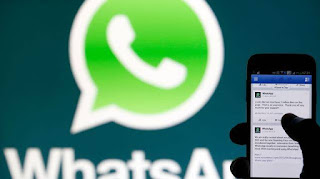You post your opinions there, you recount your travels … Social networks are full of information about their users and their operation has become a real business, but this surveillance worries, especially when it takes on a police face.
“There is a fine line between monitoring individuals and monitoring for research purposes,” said Jenny Sussin, analyst at Gartner.
Even when espionage is not the initial objective, “nothing prevents someone from creating a feed containing only the information of people on a list” and from “locating them (…) when they post to social networks from a certain region “.
Geofeedia, a company which, like many others, markets analysis services by tapping into the gigantic database represented by Twitter, Facebook or its Instagram subsidiary, has just been pinned down by the American rights organization Civic ACLU: She helped police track activists during social movements in several American cities where black men had been shot dead by police officers.
Twitter and Facebook cut off the company’s access to their data feeds. In the past, Twitter had already banned US intelligence services from using Dataminr tweet analysis software.
The ACLU, however, calls for more efforts from the networks, and in particular the blocking of applications used by the police or which can serve as spy tools.
Companies need to “know their customers” and “there are specific questions they can ask” for that, argues Sophia Cope, a civil liberties and technology lawyer at the Electronic Frontier Foundation (EFF).
The possible cooperation of the technology sector with intelligence services is a recurring debate.
French justice has in the past looked at companies like Amesys or Qosmos, whose software was suspected of being used to monitor opponents of the Gaddafi regime in Libya or Assad in Syria. And Yahoo Mail was still accused in early October of having scanned emails for US authorities.
However, the case of social networks is unique in that the data used is generally public.
The government “has its own employees who monitor social networks. But that takes manpower. That we have private companies like Geofeedia that facilitate this procedure and make government surveillance simpler, that’s what we do. worried, ”says Sophia Cope.
Analytics companies often have the advantage of being plugged directly into data streams provided by networks to application developers or the media. This allows for an automated process that will improve with the rise of artificial intelligence.
However, data mining takes on many faces. Alongside intelligence service spies, there are many advertisers wishing to reach a specific audience, or researchers trying to deduce scientific or sociological conclusions.
IBM thus announced this summer a cooperation with a Brazilian research center to follow through Twitter the spread of diseases such as Zika, dengue or Chikungunya.
And in Los Angeles, the Department of Justice is funding a study conducted since September by British researchers and the NGO Rand: they want to verify if the police could prevent racist crimes by geolocating hate comments on the networks in order to determine the neighborhoods most at risk.
“This is not to say that there is no utility but there can be abuse,” says Sophia Cope. For her, “any kind of surveillance or tracking is problematic” but “government surveillance is worse” because it violates constitutional rights
What Facebook or Twitter are trying to do so far is to write in their terms of use for developers what it is allowed to do or not with the data, notes Jenny Sussin.
But they could also remind people at the start of the session that they have agreed to share their location, she says, recalling that on networks, “it is not monitoring everyone, everywhere and not. matters when “, but that of those” who have chosen to share their information “.
“You voluntarily participate in your own monitoring,” adds Roger Kay, analyst at Endpoint Technologies Associates. “A lot of people live their lives in a very public way,” allowing spies, or ordinary criminals, to follow them.
And to evoke “Kim Kardashian and her recent robbery” in Paris: this great user of social networks has since been much more discreet.
Keywords
#twiter #facebook #youtube #instagram

